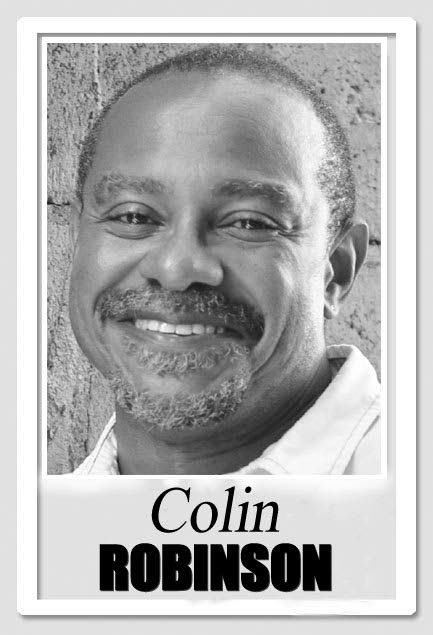I can stand a little hate speech

The Evangelical Council president won points with me for his honesty that the church may not be doing enough to respond to violence against women. He’d taken to radio to parrot, pretty inartfully, talking points the international Christian right has fed him about cultural Marxism and some book by Kirk & Madsen.
I’ve never read the book that’s supposed to be the bible for the homosexual agenda — all with little evidence of his ownership or its local relevance like a B student taking an exam.
These talking points basically lament that the world is no longer one where would-be patriarchs like him can depend on single moral absolutes to police people into a particular order.
We now live in deliciously plural democracies like TT where people believe (and eat and wear) different things and are supposed to be treated equally despite choosing to be different.
Challenged why, instead of dealing with burning problems like domestic violence, his churches are so obsessed with telling LGBTI people how to live their lives and the imagined threat their self-determination poses, he became surprisingly genuine about the church’s shortcomings. It offers hope local evangelical churches can find living relevance, instead of acting out a sense of siege and grief with foreign words and ideas.
With him was late Sat Maharaj’s cousin, a Catholic church lawyer who continues to clutch onto a seat on the Equal Opportunity Tribunal (EOT), which makes binding judgments on cases of discrimination, despite a public promise to step down.
She shared the Catholic version of the view that people should forgo lives of choice and joy for ones of misery, obedience and chastity. She argued that the regrets of two women raised by same-sex parents be made into public policy, citing words from Heather Barwick about the pain of missing a father growing up.
Take a number, Heather, behind most Caribbean children raised by single women men have abandoned.
Neither representative expressed any fear their faith would be forced to marry people of the same sex. And nowhere that same-sex marriage exists in the world is that the case; it’s a civil covenant.
But one fear they did voice — surprisingly indirectly — was about faiths being punished or limited in espousing views and practices that LGBTI people are disordered and undeserving of equal treatment. Further, that either social and legal acceptance or a comprehensive sexuality education curriculum would teach children to see LGBTI people as equal in dignity and — what we know from science — that homo/bisexuality are normal human variations.
I get it. A commitment to freedom of religion requires we create a society where people can hold and transmit irrational faith views. The danger, of course — the same kind faith leaders feel about gay people raising children — is that children get raised with ideas about their own degeneracy and unworthiness that lead to them self-harming, or ideas about others that lead them to discriminate.
While few LGBTI activists internationally have read Kirk & Madsen, what is shared is a push to regulate speech that is seditious toward LGBTI people, which whips up ill-will and hostility toward them or incites violence. It’s a key area where states are challenged to balance among freedom of speech and religion, equal protection and human dignity.
Few voices, if any here, have been championing hate-speech protections for LGBTI people, quite the opposite. I may be the lone voice calling for the EOT lay assessor’s resignation.
And I am deeply ambivalent about the costs of over-regulating offensive speech.
So I was pretty stunned at responses in some circles to another activist judicial officer’s ruling this week that the hateful Sedition Act (enshrined in decades of cultural and calypso lore) is unconstitutional, because its provisions are so broad they lack legal certainty.
All of a sudden, folks were leaping forward arguing we risk moral and political chaos without laws against hateful speech. You mean including homophobic speech? The Equal Opportunity Act provisions for binding judgments against offensive speech weren’t enough; some argued; we needed to throw people in jail.
As if we’ve been active in prosecuting a long list of the vilest utterances; or haven’t developed a cultural tolerance that prevents violence following such speech.
People seemed most afraid of political speech—speech we should regulate least.
The social media responses seemed frighteningly Trumpian.
Ethnicity and reputation of both plaintiff and judge — and who’s currently in Government — of course colour this sudden embrace of a symbol of colonial oppression.
One commentator compared how a rational, familiar measure like property tax was successfully hyped by partisanship into a dangerous cause.
Instead of its lengthy, expensive appeal, the Government could simply modernise the law. And we can have a balanced national debate about free speech and human dignity.


Comments
"I can stand a little hate speech"